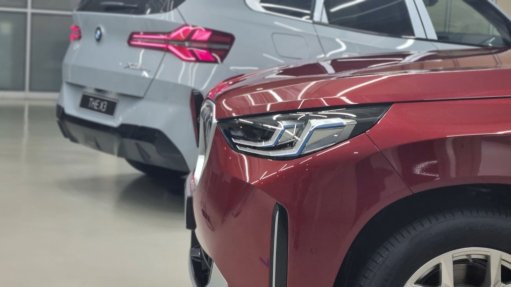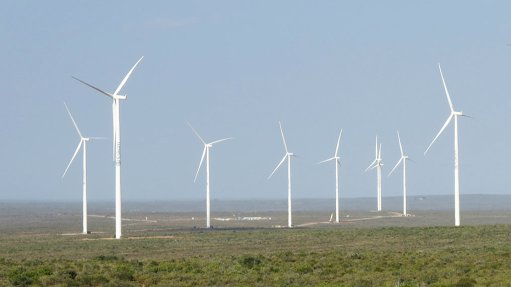SOEs the worst they have ever been
The above headline is part of a sentence in a report released by the Auditor-General on November 20, which reads: “The overall audit outcomes of State-owned enterprises (SOEs) are the worst they have ever been.”
For the uninitiated, an audit serves “to conduct an official financial inspection of a company or its accounts”, while an SOE is “a legal entity created by a government in order to partake in commercial activities on government’s behalf”.
The sentence cited in the opening paragraph appears in Section 7 – titled ‘Governance, Oversight and Sustainability of State-Owned Entities’ – of the Auditor-General’s report.
The audits were conducted in accordance with the Public Finance Management Act (PFMA), which serves “to regulate financial management in the national government and provincial governments; to ensure that all revenue, expenditure, assets and liabilities of those governments are managed efficiently and effectively; to provide for the responsibilities of persons entrusted with financial management in those governments; and to provide for matters connected therewith”.
Under Schedule 2, the PFMA lists 21 ‘major’ public entities, commonly known as SOEs. These SOEs are independent entities, partially or fully owned by the State, and were established to achieve various socioeconomic goals of government. They are expected to fulfil a dual commercial and developmental role, generate profits and declare dividends, and be run in accordance with general business principles.
The 21 ‘major public entities’ are as follows: Air Traffic & Navigation Services Company; Airports Company South Africa; Alexkor; Armaments Corporation of South Africa, or Armscor; Broadband Infrastructure Company; the Central Energy Fund; Denel; the Development Bank of Southern Africa; the Electricity Supply Commission, commonly known as Eskom; the Independent Development Trust; the Industrial Development Corporation of South Africa; the Land and Agricultural Development Bank of South Africa; South African Airways (SAA); the South African Broadcasting Corporation; South African Express; the South African Forestry Company; the South African Nuclear Energy Corporation (Necsa); the South African Post Office; Telkom; the Trans-Caledon Tunnel Authority (TCTA); and Transnet.
Commenting on the overall audit outcomes, the Auditor-General noted: “The overall audit outcomes of the SOEs regressed when compared with the previous year and significantly regressed over the last five years. Confidence in the ability of the executives tasked to manage the affairs of SOEs has similarly regressed over the past years. Turnaround plans initiated almost on an annual basis had almost no impact in restoring the SOE environment, as executive and management instability makes it impossible to hold those responsible accountable. We found the discipline of sustained monitoring and oversight of key controls to be extremely weak at most SOEs. The overall audit outcomes of the SOEs are the worst they have ever been.
“Renewed efforts to turn around the dire state of affairs at SOEs have begun with the appointment of new accounting authorities at most SOEs. There was a significant increase in irregular expenditure at these SOEs due to a drive to clean up irregularities from the past. We provide more details in this regard throughout the section to serve as an example to all auditees to implement similar measures to improve their internal controls and clear irregularities.”
SAA, Necsa and TCTA did not complete their audits on time, while government provided financial guarantees totalling R446-billion, compared with R428-billion in the previous year, with Eskom accounting for 78% of the total figure.
Shockingly, there are no consequences. One is reminded of the refrain of U2’s Sunday Bloody Sunday song: “How long, how long must we sing this song?”
Article Enquiry
Email Article
Save Article
Feedback
To advertise email advertising@creamermedia.co.za or click here
Press Office
Announcements
What's On
Subscribe to improve your user experience...
Option 1 (equivalent of R125 a month):
Receive a weekly copy of Creamer Media's Engineering News & Mining Weekly magazine
(print copy for those in South Africa and e-magazine for those outside of South Africa)
Receive daily email newsletters
Access to full search results
Access archive of magazine back copies
Access to Projects in Progress
Access to ONE Research Report of your choice in PDF format
Option 2 (equivalent of R375 a month):
All benefits from Option 1
PLUS
Access to Creamer Media's Research Channel Africa for ALL Research Reports, in PDF format, on various industrial and mining sectors
including Electricity; Water; Energy Transition; Hydrogen; Roads, Rail and Ports; Coal; Gold; Platinum; Battery Metals; etc.
Already a subscriber?
Forgotten your password?
Receive weekly copy of Creamer Media's Engineering News & Mining Weekly magazine (print copy for those in South Africa and e-magazine for those outside of South Africa)
➕
Recieve daily email newsletters
➕
Access to full search results
➕
Access archive of magazine back copies
➕
Access to Projects in Progress
➕
Access to ONE Research Report of your choice in PDF format
RESEARCH CHANNEL AFRICA
R4500 (equivalent of R375 a month)
SUBSCRIBEAll benefits from Option 1
➕
Access to Creamer Media's Research Channel Africa for ALL Research Reports on various industrial and mining sectors, in PDF format, including on:
Electricity
➕
Water
➕
Energy Transition
➕
Hydrogen
➕
Roads, Rail and Ports
➕
Coal
➕
Gold
➕
Platinum
➕
Battery Metals
➕
etc.
Receive all benefits from Option 1 or Option 2 delivered to numerous people at your company
➕
Multiple User names and Passwords for simultaneous log-ins
➕
Intranet integration access to all in your organisation

















